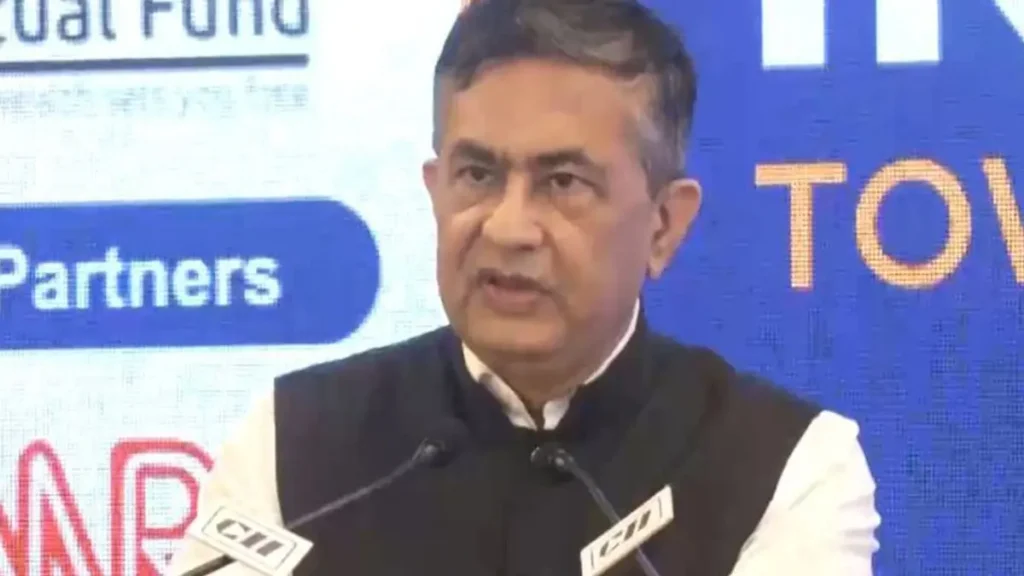Now Reading: “Dukaandari Hi Karni Hai?” Piyush Goyal’s Blunt Remark Sparks Startup Debate
-
01
“Dukaandari Hi Karni Hai?” Piyush Goyal’s Blunt Remark Sparks Startup Debate
“Dukaandari Hi Karni Hai?” Piyush Goyal’s Blunt Remark Sparks Startup Debate
Union Commerce and Industry Minister Piyush Goyal’s recent comments, questioning the long-term viability of startups solely focused on food delivery, have ignited a fierce debate within India’s burgeoning tech ecosystem. His pointed remark, “Dukaandari hi karni hai?” (Do you just want to run a shop?), delivered during an interactive session with startup founders, has been interpreted as a call for greater innovation and a departure from what he perceives as a limited business model.
Goyal’s critique comes at a time when food delivery platforms, like Zomato and Swiggy, have become household names in India, revolutionizing the way millions access meals. However, despite their widespread adoption, these companies have struggled to consistently achieve profitability, raising concerns about the sustainability of their business models.
The Minister’s Concerns: Beyond Delivery, Towards Innovation
Goyal’s statement wasn’t a blanket condemnation of food delivery services. Instead, it highlighted his desire for startups to move beyond simply facilitating transactions and focus on creating deeper, more impactful solutions. He urged entrepreneurs to explore areas like:
- Technology-driven innovation: Developing cutting-edge technologies that enhance the entire food value chain, from sourcing and processing to delivery and waste management.
- Expansion into related sectors: Leveraging their existing infrastructure and customer base to venture into adjacent areas like grocery delivery, cloud kitchens, or supply chain optimization.
- Focus on sustainability: Addressing environmental concerns by promoting eco-friendly packaging, reducing food waste, and supporting sustainable agriculture practices.
- Building robust supply chains: Strengthening the agricultural and food processing sectors by providing access to technology, finance, and market linkages.
Goyal’s emphasis on innovation aligns with the government’s broader vision of fostering a vibrant startup ecosystem that contributes to India’s economic growth and social development. He believes that startups have the potential to solve complex challenges and create long-term value, rather than merely facilitating short-term transactions.
Startup Reactions: A Mix of Defense and Acknowledgment
The minister’s comments have elicited a range of responses from the startup community. While some have defended the importance of food delivery services in providing convenience and employment opportunities, others have acknowledged the need for greater diversification and innovation.
Many founders pointed out that food delivery platforms have played a crucial role in supporting small restaurants and businesses, particularly during the COVID-19 pandemic. They argued that these platforms have created a vital marketplace for local vendors, enabling them to reach a wider customer base.
However, there’s also a growing recognition that relying solely on food delivery may not be a sustainable strategy in the long run. The intense competition, coupled with high operational costs and thin profit margins, has led to a realization that diversification is essential for long-term survival.
Industry Experts Weigh In: The Need for Sustainable Business Models
Industry experts have echoed Goyal’s concerns, emphasizing the need for food delivery startups to develop sustainable business models. They highlight the importance of:
- Improving unit economics: Optimizing operational efficiency, reducing delivery costs, and increasing order value.
- Building strong brand loyalty: Creating a unique value proposition and fostering customer engagement to reduce reliance on discounts and promotions.
- Exploring alternative revenue streams: Diversifying into areas like advertising, subscription services, or cloud kitchens.
- Investing in technology: Leveraging data analytics, AI, and automation to improve efficiency and personalize customer experiences.
The debate sparked by Goyal’s comments has brought to the forefront the challenges and opportunities facing India’s food delivery sector. It has also underscored the government’s commitment to fostering a startup ecosystem that prioritizes innovation, sustainability, and long-term value creation.
Looking Ahead: A Call for Transformation
Goyal’s remarks serve as a wake-up call for food delivery startups to reassess their strategies and embrace a more comprehensive approach to business. While the convenience and efficiency offered by these platforms are undeniable, their long-term success will depend on their ability to innovate, diversify, and create sustainable business models that contribute to India’s economic growth and social development.
The future of India’s food delivery sector lies in its ability to transcend the “dukaandari” mindset and embrace a vision of innovation and transformation. It needs to evolve from being just a delivery mechanism to a key player in the larger food ecosystem, driving efficiency, sustainability, and value creation.










